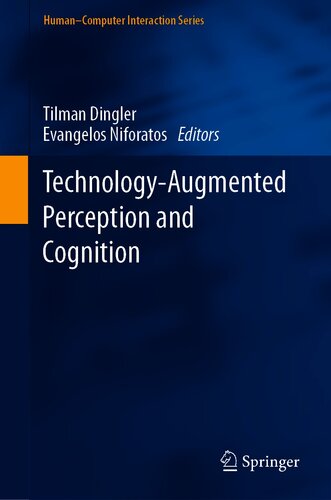

Most ebook files are in PDF format, so you can easily read them using various software such as Foxit Reader or directly on the Google Chrome browser.
Some ebook files are released by publishers in other formats such as .awz, .mobi, .epub, .fb2, etc. You may need to install specific software to read these formats on mobile/PC, such as Calibre.
Please read the tutorial at this link: https://ebookbell.com/faq
We offer FREE conversion to the popular formats you request; however, this may take some time. Therefore, right after payment, please email us, and we will try to provide the service as quickly as possible.
For some exceptional file formats or broken links (if any), please refrain from opening any disputes. Instead, email us first, and we will try to assist within a maximum of 6 hours.
EbookBell Team

5.0
88 reviewsTools and technologies have long complemented and extended our physical abilities: from pre-historic spearheads to steam-propelled ploughs and high-tech prosthetics. While the development of lenses granted us insights into the micro and macrocosms, new sensors and technologies increasingly augment our cognitive abilities, including memory and perception.
This book integrates current research efforts, results, and visions from the fields of computer science, neuroscience, and psychology. It provides a comprehensive overview of the state-of-the-art and future applications of how technologies assist and augment human perception and cognition.
Experts in the field share their research and findings on:
As technology weaves itself ever deeper into our lives, careful examination of its capabilities, risks and benefits is warranted. While this book focuses on the complementation and augmentation of human capabilities, it serves as a foundation for students, researchers and designers of technologies that push the boundaries of perception and cognition.